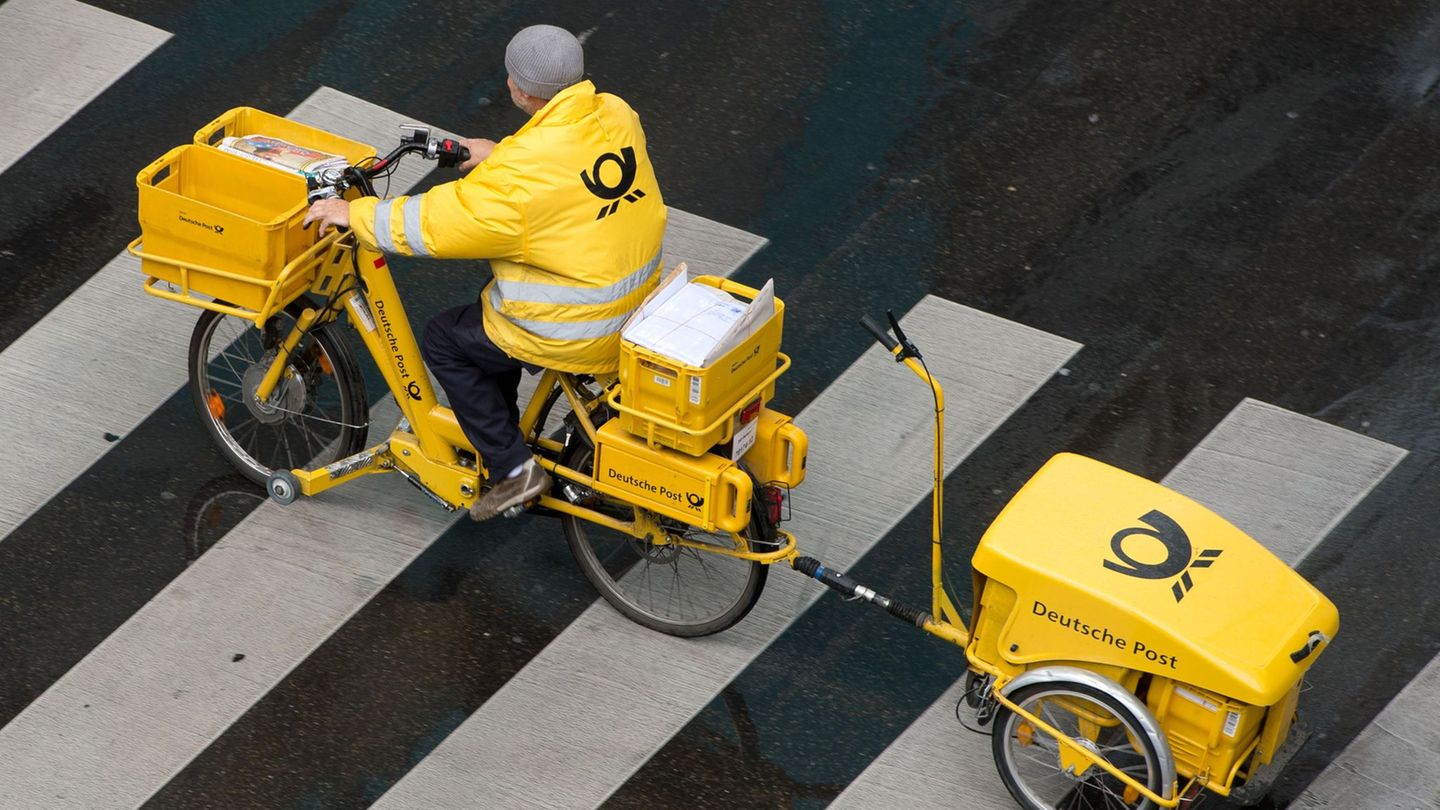Verdi
Nationwide warning strike at Deutsche Post
Copy the current link
If you are waiting for a letter or a package, you may still have to be patient: the post office will be on Tuesday.
In the tariff conflict at Deutsche Post, the Verdi union relies on warning strikes to increase the pressure on employers. Verdi said that employees in large cities and larger cities in all federal states are called for full -layer warning strikes on Tuesday. There will be failures and delays in the delivery of packages and letters. Verdi-Vice Andrea Kocsis justified the step with the fact that the second round of negotiations had not brought any tangible results last week.
Verdi insists on a wage plus of seven percent and additional vacation days. The fact that employers would have rejected these claims as uninfected is “not acceptable,” said Kocsis. “The still high living costs can only be managed with significant increases in wages for employees.” The message of the warning strikes is clear, said Kocsis. “We are serious and we are ready to fight for our demands.”
Sending mail was recently more expensive
In the collective bargaining negotiations, Swiss Post represents the scope for wage increases as “very low” because the letter quantities in the digital age shrink and the investment needs are large. At the beginning of the year, the letter shipping had made an average of 10.5 percent, the postage for a standard letter has been 95 cents since then and not 85 cents. The Federal Network Agency had allowed the company to increase the postage. From the company’s point of view, that was too little, she had hoped for a larger price premium.
Deutsche Post has around 170,000 collective staff in its home in its letter and package business, and it belongs to the logistics group DHL. The next round of negotiations is scheduled for February 12 and 13. In the previous collective bargaining in 2023, the union and the mail had agreed on a significant increase in tariffs, which met an average increase of 11.5 percent across all income groups.
Source: Stern




